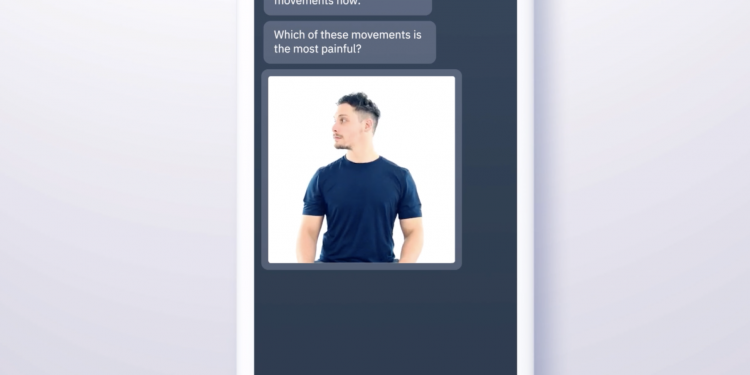A digital physiotherapist that will potentially treat around 40 per cent of musculoskeletal problems without human intervention was launched at the Google Campus in London yesterday.
The first phase of the product, called Phio and launched by EQL, is a chatbot that thinks and acts like a physiotherapist, guiding the user through a range of questions to diagnose conditions. The first phase of the offering is a triage tool for all MSK conditions, with a digital injury management tool to follow later in the year.
Phio uses AI and machine learning to be evolve and adapt its behaviour to every user, giving it a ‘personality’ and the ability to absorb knowledge. A personalised tone and language are used to enhance engagement and adherence.
EQL, which is part of the Google Cloud for Startups Programme, has developed Phio to improve patient outcomes via an app. It reduces the need for human intervention, fast-tracking patient care. Algorithms guide users to the appropriate pathway: urgent care for those presenting with ‘red flag’ symptoms; face-to-face care for those not suited for self-managed care; and a digital injury management option for that significant proportion of individuals who will present with low-grade injuries. Phio’s decision tree is underpinned by clinical frameworks which are monitored alongside the collection of lifestyle data.
Accessible 24/7 and available in any language, EQL says Phio comes at a fraction of the cost when compared to traditional physiotherapy triage and human-led self-managed care. It can complement existing services and is being positioned as an alternative for telephone based and remote physiotherapy services. The app can offer users three to four nudges a day reminding them to perform suitable exercises. If the user permits access to wearable technology or other movement data, the app can also detect sedentary periods and suggest movement.
Phio is currently being piloted with a number of large clients across both the private and public healthcare market.
EQL is currently engaging with the University of Birmingham which is set to provide clinical validation for Phio. This will include an evaluation of the patient experience with a view to optimal patient usability as well as a preliminary review of the clinical effectiveness when compared to current practice.
EQL CEO and co-founder Jason Ward says: “Limited resources mean access to healthcare is often poor, costly and cumbersome with excessive waiting times and limited connectivity between practitioners and patients. This can result in high costs and less than optimal health outcomes. We are determined to change this and level the playing field when it comes to accessing healthcare. We believe in democratising healthcare. We are all EQL”.





